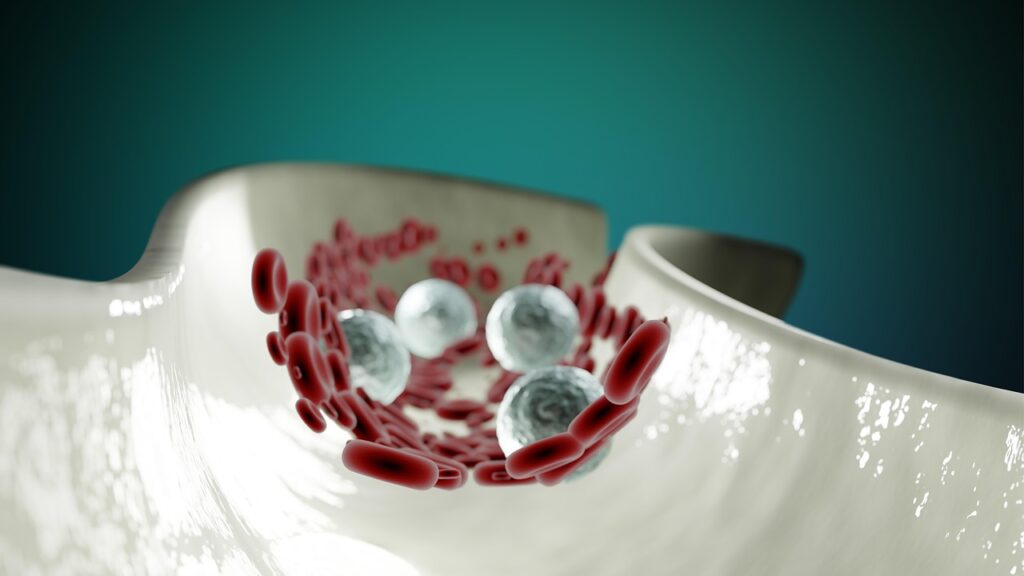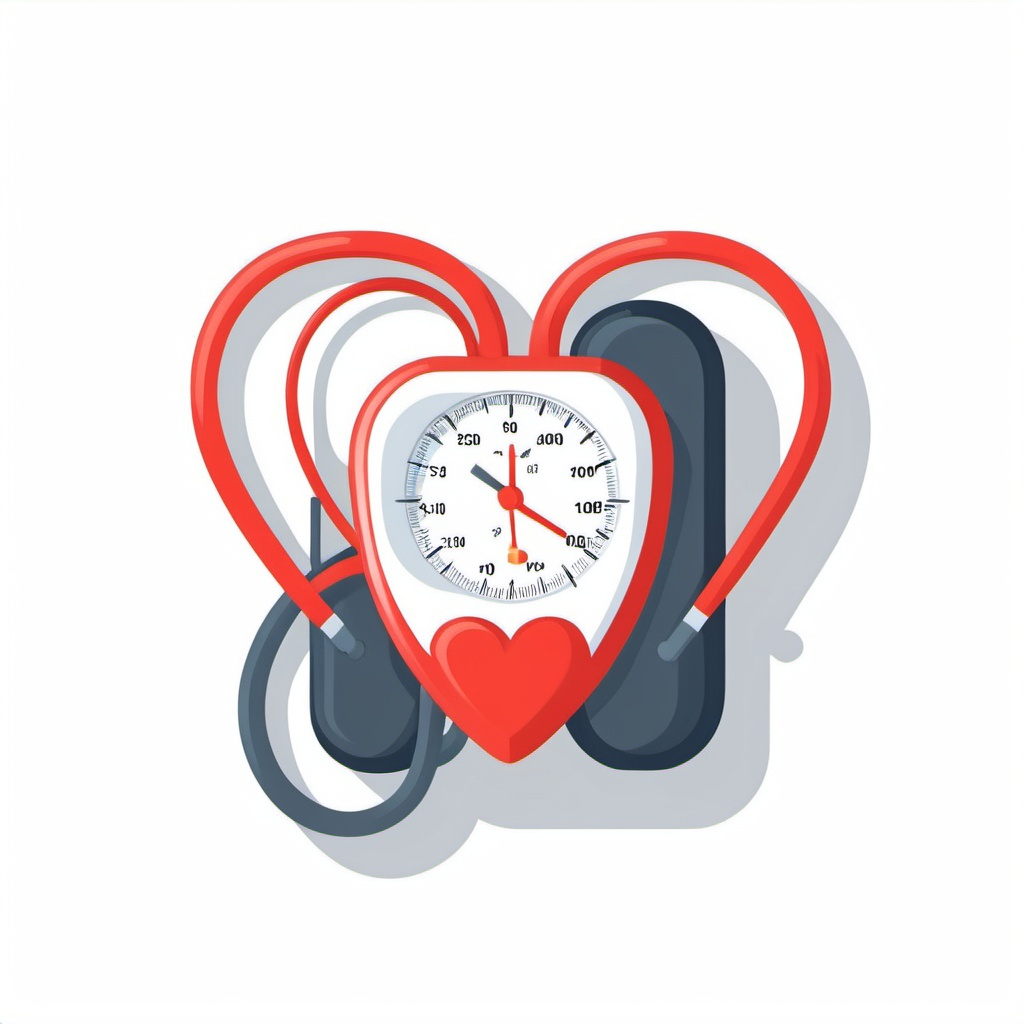
High Cholesterol
High cholesterol is a condition where excess cholesterol builds up in the bloodstream, increasing the risk of heart disease and stroke. Often symptomless, it can go unnoticed until it causes serious complications—earning it the reputation of a “silent threat.”
Symptoms and Causes
High cholesterol typically has no symptoms, which is why regular screenings are crucial. It often results from a combination of genetics and lifestyle choices like a diet high in saturated fats, lack of physical activity, smoking, or excess alcohol consumption. Elevated LDL (“bad”) cholesterol contributes to arterial plaque, while low HDL (“good”) cholesterol can also raise cardiovascular risk.
Prevalence and Prognosis
Nearly 40% of U.S. adults have high cholesterol, and many are unaware of it. The good news: it’s manageable. Through lifestyle changes, medication, and regular monitoring, the risks associated with high cholesterol can be significantly reduced.
Management and Treatment
- Diet: Eating more fiber, whole grains, lean proteins, and healthy fats while reducing saturated and trans fats can help manage cholesterol levels.
- Exercise: Regular physical activity can increase HDL cholesterol and lower LDL cholesterol and triglycerides.
- Medications: Statins are most common, but others like ezetimibe, PCSK9 inhibitors, or bile acid sequestrants may be prescribed.
- Lifestyle Changes: Quitting smoking, limiting alcohol, managing stress, and maintaining a healthy weight are key to long-term control.
Living with High Cholesterol
Successfully managing cholesterol means being proactive: regular checkups, adherence to prescribed plans, and maintaining healthy habits. Support from loved ones and healthcare providers can make this ongoing process more manageable and sustainable.
Common Concerns for Individuals Managing High Cholesterol
Risk of Serious Complications
If left uncontrolled, high cholesterol can lead to coronary artery disease, heart attacks, strokes, and peripheral artery disease. Managing cholesterol levels is vital for cardiovascular health.
Monitoring and Testing
Regular blood tests are necessary to track cholesterol levels. Many people find interpreting their results—especially newer or more advanced markers—challenging.
Medication Side Effects
Side effects like muscle aches, digestive issues, or liver enzyme elevations can be concerns with statins and other cholesterol-lowering medications, leading to questions about long-term use.
Nutrition and Food Choices
Switching to a cholesterol-friendly diet can feel overwhelming. Learning to read food labels and avoid hidden fats or sugars is a frequent concern.
Exercise and Physical Activity
Starting or maintaining an exercise routine can be tough, especially with existing health issues. Tailoring physical activity to your ability and preferences is key.
Stress and Emotional Well-being
Stress can affect eating, sleep, and exercise habits. Finding effective ways to manage it—like mindfulness, therapy, or creative outlets—supports overall heart health.
Managing Other Conditions
Cholesterol issues often coexist with conditions like diabetes, hypertension, or obesity. Coordinated care is essential for managing multiple risk factors.
Cost and Access to Care
The financial burden of medications, tests, and doctor visits can be significant. Access to affordable and consistent care is a common concern.
Awareness and Education
Understanding terms like LDL, HDL, triglycerides—and now Lp(a)—isn’t always straightforward. Staying informed empowers better choices and discussions with your healthcare provider.
Understanding Lp(a): The Hidden Cholesterol Risk
Lipoprotein(a), or Lp(a), is a type of cholesterol particle that carries a particularly sticky form of LDL. Elevated Lp(a) levels are largely genetic and are not typically affected by diet, exercise, or most standard cholesterol medications.
Why It Matters
High levels of Lp(a) are linked to a significantly higher risk of heart attack, stroke, aortic valve disease, and blood clots—even in people with normal LDL levels. It’s an independent risk factor and often goes untested in routine cholesterol panels.
How to Test
A simple blood test can measure Lp(a) levels, but it’s not included in standard cholesterol screening. If you have a personal or family history of early heart disease or stroke, talk to your doctor about getting tested.
Managing High Lp(a)
While lifestyle changes still matter, elevated Lp(a) often requires more targeted interventions:
- Niacin has shown limited success in lowering Lp(a), but its use is now less common due to side effects.
- PCSK9 inhibitors may reduce Lp(a) in addition to LDL.
- New therapies specifically targeting Lp(a) are in development and showing promise in clinical trials.
Understanding and monitoring Lp(a) is an important step for individuals at high cardiovascular risk—especially when traditional risk factors don’t tell the full story.
Featured in High Cholesterol
- Metabolism Makeover: The Secret to Burning Fat Without Dieting
 Most weight loss articles promise quick fixes and miracle solutions. This isn’t one of them. Instead, we’re going to explore…
Most weight loss articles promise quick fixes and miracle solutions. This isn’t one of them. Instead, we’re going to explore… - Fitness at Any Size Starts with Just One Small Step
 You don’t have to be thin, toned, or able to run a mile to start moving your body in ways…
You don’t have to be thin, toned, or able to run a mile to start moving your body in ways… - Ultra-Processed Foods: A Growing Health Concern
 Ultra-processed foods are everywhere — from the quick snacks in your pantry to many of the meals on grocery store…
Ultra-processed foods are everywhere — from the quick snacks in your pantry to many of the meals on grocery store… - The Shocking Truth About Heart Disease in ‘Healthy’ People
 When you think of heart disease, you probably picture someone who smokes, eats fast food daily, and avoids exercise like…
When you think of heart disease, you probably picture someone who smokes, eats fast food daily, and avoids exercise like… - Obesity Treatment is a Necessity, Shouldn’t be a Choice
 Obesity treatment represents a medical necessity rather than merely an aesthetic choice. The decision to treat obesity stems from extensive…
Obesity treatment represents a medical necessity rather than merely an aesthetic choice. The decision to treat obesity stems from extensive… - Avocado: Creamy Comfort for Inflammation
 Avocados are the ultimate comfort food for anyone dealing with arthritis or other inflammatory conditions. These creamy delights are packed…
Avocados are the ultimate comfort food for anyone dealing with arthritis or other inflammatory conditions. These creamy delights are packed… - Inflammation: The Root Cause of Almost Every Major Disease You’ve Never Heard About
 Inflammation might sound like something that happens when you sprain your ankle or get a nasty paper cut, but did…
Inflammation might sound like something that happens when you sprain your ankle or get a nasty paper cut, but did… - Stress and Its Impact on Your Physical Health
 Stress doesn’t just affect your mood—it takes a toll on your body too. Chronic stress can contribute to high blood…
Stress doesn’t just affect your mood—it takes a toll on your body too. Chronic stress can contribute to high blood… - Obesity and its Numerous Comorbidities
 Obesity significantly impacts multiple organ systems and is associated with numerous comorbid conditions that can substantially affect health outcomes and…
Obesity significantly impacts multiple organ systems and is associated with numerous comorbid conditions that can substantially affect health outcomes and…

